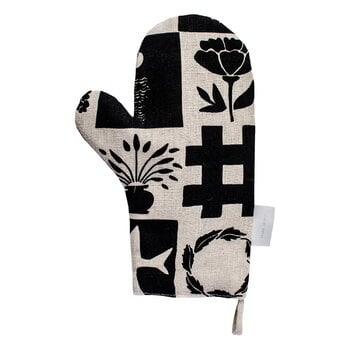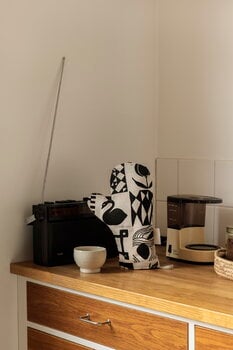The Kaukana kotoa oven mitten by Saana ja Olli is decorated with a charming design that gives the viewer endless things to find and explore. The name Kaukana kotoa translates to “far from home”, and the pattern is formed like a patchwork, featuring a volcano, a heart, a rose, birds, fruit and human figures, for example. What's the first thing that catches your eye?
The Kaukana kotoa oven mitten and other Saana ja Olli products are designed to bring a touch of timeless beauty to everyday life. Made from durable 100% hemp fabric, the products are transparently manufactured in Finland.







